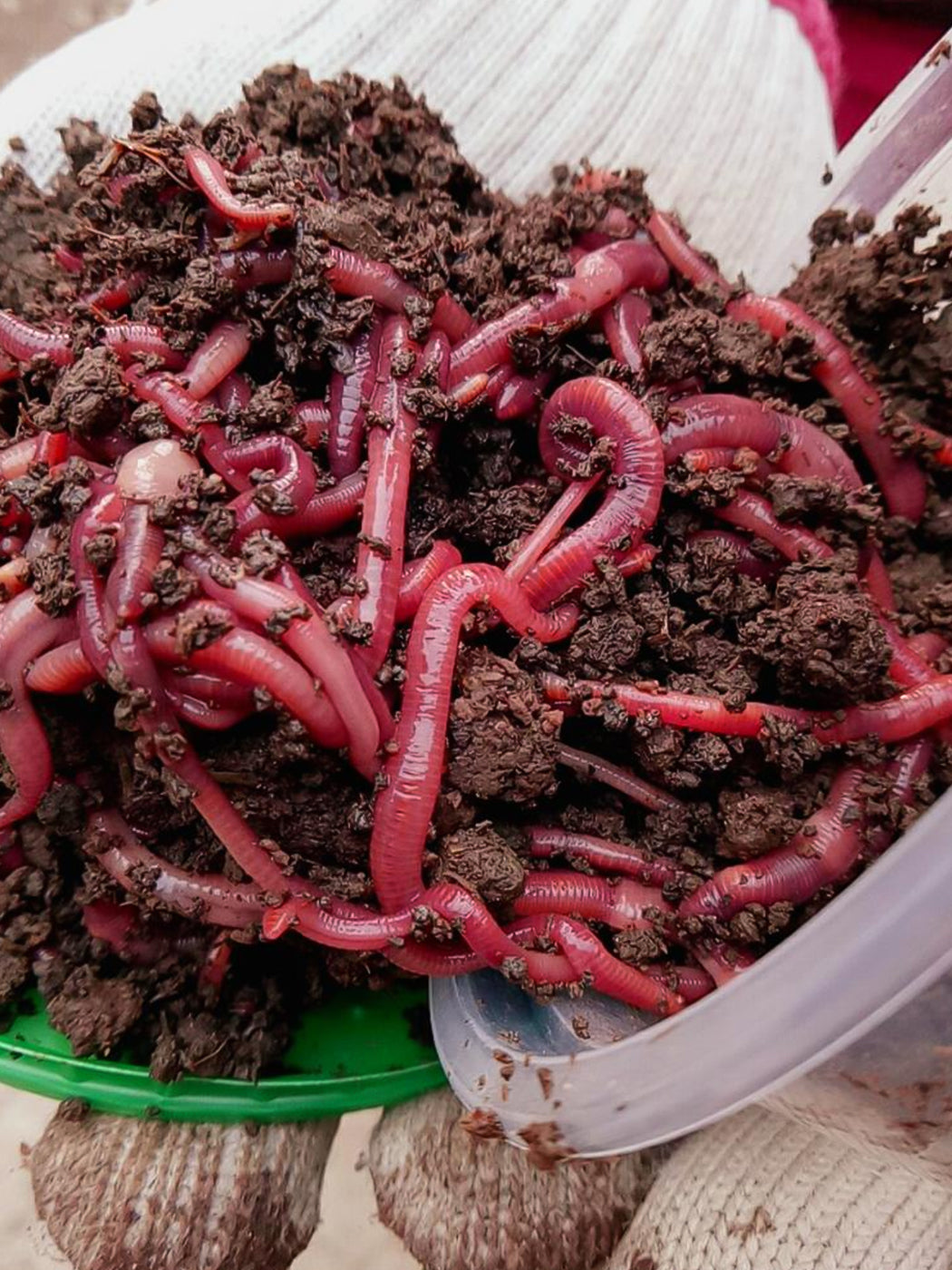Enhance Your Lawn’s Health and Beauty with Red Wiggler Express Lawn Care Solutions
Enhance Your Lawn’s Health and Beauty with Red Wiggler Express Lawn Care Solutions
Blog Article
Red Wigglers: The Unsung Heroes of Organic Waste Recycling
Red wigglers, or Eisenia fetida, offer as critical representatives in the natural waste recycling procedure, transforming disposed of materials right into important vermicompost. As the globe significantly looks for options to fight waste build-up and boost farming efficiency, understanding the function of these worms becomes essential.
What Are Red Wigglers?
The amazing strength of red wigglers, clinically referred to as Eisenia fetida, underscores their crucial role in natural waste recycling. These tiny, reddish-brown earthworms are normally found in breaking down raw material, such as compost heap and manure stacks. Lake Hickory Bait. Unlike various other earthworm species, red wigglers thrive in nutrient-rich environments and are very efficient at breaking down organic products, making them necessary for vermicomposting

(Red Wiggler Express)Along with their duty in waste reduction, red wigglers add to soil health and wellness by enhancing soil framework and aeration via their burrowing tasks (Lake Hickory Bait). Their presence in composting systems not only boosts decomposition prices yet additionally advertises a sustainable strategy to throw away monitoring, showing their value in environmental preservation initiatives
Advantages of Composting With Worms
Composting with worms, especially red wigglers, provides countless benefits that boost both waste monitoring and soil health. Initially, these worms effectively damage down organic waste, converting it right into nutrient-rich vermicompost that enhances dirt. This process accelerates decay, allowing for a faster recycling of kitchen area scraps and various other natural products contrasted to typical composting methods.
Furthermore, the vermicompost generated by red wigglers is including helpful microbes, which aid boost soil structure, aeration, and dampness retention. This improves the total health of plants, advertising energetic growth and enhanced returns in gardens and agricultural setups. The use of worms in composting minimizes the manufacturing of greenhouse gases, such as methane, adding to an extra lasting waste management system.

Exactly How to Start Vermicomposting
Developing a vermicomposting system is a simple procedure that can generate considerable advantages for both waste administration and soil enrichment. To begin, select a suitable container, such as a plastic bin or wooden box, with adequate air flow holes to guarantee proper airflow. The dimensions need to preferably be about 2 feet by 3 feet, allowing enough space for the worms to thrive.
Next, prepare bed linens product, which can be composed of shredded newspaper, cardboard, or coconut coir. This bed linens ought to be moistened to develop an ideal environment for the worms. As soon as the bed linens remains in place, present red wigglers (Eisenia fetida) into the container, generally around one extra pound of worms for every single square foot of surface.
Following the placement of worms, include organic waste, such as vegetables and fruit scraps, coffee premises, and crushed eggshells. Stay clear of adding dairy, meat, or oils, as these can develop smells and draw in parasites. Ultimately, place the bin in a shaded, temperature-controlled area to preserve optimal problems for worm activity. With these actions, you will efficiently initiate a vermicomposting system that contributes to lasting waste administration and enhances your soil.
Preserving a Healthy Worm Container
(Lake Hickory Bait)Maintaining a worm bin thriving calls for regular attention and like make certain the wellness of the red wigglers and the performance of the composting process. Appropriate upkeep begins with keeping an eye on the dampness levels; the container ought to perspire however not saturated. An excellent general rule is to maintain a consistency comparable to a wrung-out sponge.
Oygenation is crucial. Gently blending the bedding and food scraps every couple of weeks avoids compaction and makes certain that all worms have access to oxygen. Additionally, it is necessary to feed the worms suitably. A balanced diet plan of vegetables and fruit scraps, coffee grounds, and crushed eggshells must be used in small amounts to stay clear of overfeeding, which can cause odors and pests.
Temperature level regulation is another vital facet. Red wigglers flourish in a series of 55 to 77 degrees Fahrenheit. If the bin comes to be as well warm or cool, the worms might end up being stressed out - Lake Hickory Bait. Lastly, occasionally look for indications of health, such as worm populace growth and the existence of healthy and balanced castings. By faithfully taking care of these factors, one can maintain a robust and productive worm bin.
Influence On Lasting Living
The successful upkeep of a worm container not only benefits the health of red wigglers but additionally adds considerably to sustainable living methods. By recycling natural waste, such as kitchen scraps and backyard particles, red wigglers aid draw away substantial amounts of material from garbage dumps. This reduction in waste not only decreases greenhouse gas emissions however likewise minimizes the environmental concern associated with waste administration.
Moreover, the castings produced by red wigglers act as a nutrient-rich natural fertilizer, enhancing dirt health and advertising plant growth. This all-natural option to chemical over here fertilizers supports sustainable farming and horticulture techniques, reducing reliance on artificial inputs that can harm ecological communities. Furthermore, worm composting promotes understanding of waste administration, urging individuals and communities to embrace more lasting behaviors.

Final Thought
In summary, red wigglers offer as important contributors to organic waste reusing via their effective disintegration of natural materials. By integrating vermicomposting into waste monitoring methods, individuals and communities can substantially minimize waste while promoting ecological sustainability.
Report this page